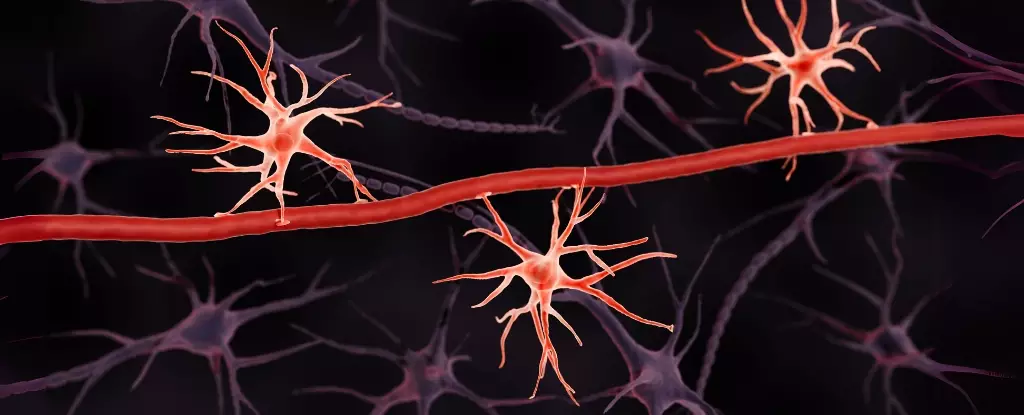Recent advancements in neurological research are redefining our approach to combating devastating conditions like Alzheimer’s disease. Scientists at Case Western Reserve University (CWRU) have made groundbreaking discoveries around a novel drug aimed at mitigating brain inflammation and fortifying one of the brain’s most crucial defenses: the blood-brain barrier (BBB). This newfound drug, which inhibits the enzyme 15-PGDH, showcases a departure from current treatment strategies, opening up fresh pathways for therapeutic interventions in neurodegenerative diseases.
Understanding the Blood-Brain Barrier’s Role
The blood-brain barrier serves as a formidable guardian, selectively permitting substances to infiltrate the brain while blocking harmful agents such as toxins or pathogens. However, this protective barrier is not impervious; injury or age-related degeneration can compromise its integrity. The deterioration of the BBB has emerged as an alarming sentinel, potentially forecasting the onset of dementias, including Alzheimer’s. In their research, the CWRU team revealed that an imbalance in immune response within the BBB is significantly tied to neurodegenerative conditions, placing the immune enzyme 15-PGDH at the forefront of their findings.
Charting a New Course with 15-PGDH Inhibition
What sets the CWRU discovery apart is its innovative mechanism of action. Traditional Alzheimer’s therapies have largely revolved around reducing amyloid plaque buildup—an approach that has not only proven ineffective but also carries considerable side effects. In stark contrast, the drug SW033291 effectively inhibits 15-PGDH enzyme activity, a strategy that maintains amyloid levels while fundamentally altering the body’s inflammatory response. “Inhibiting 15-PGDH represents a novel strategy focussed on sustaining brain health post-injury,” remarks pathologist Sanford Markowitz from CWRU, emphasizing the transformative potential of this drug in current therapeutic paradigms.
Impressive Results in Mouse Models
The impact of SW033291 is profound. In controlled studies with mice, the drug has proved remarkably effective in preserving the integrity of the blood-brain barrier even after instances of traumatic brain injury. Neuroscientist Andrew Pieper notes that these treated models exhibited intact brain structures alongside conserved cognitive functions. The findings suggest not only a preventative capability against cognitive decline but also a reversal effect that could alter the narrative surrounding neurodegenerative disease progression. In these experiments, the animals exhibited no signs of neurodegeneration and retained their memory and cognitive faculties—an astonishing leap forward.
Implications for Future Research and Treatment
With the global increase in dementia cases reaching nearly ten million annually, the urgency for effective interventions cannot be overstated. The innovative approach of targeting immune-based pathways within the BBB introduces new avenues not just for Alzheimer’s, but potentially for various neurological disorders. As researchers continue to elucidate the mechanisms at play, the emphasis on 15-PGDH presents a beacon of hope amidst the complexities of neurobiology. While this research is still in its early stages and much work remains to be done, the implications of maintaining and restoring BBB integrity could profoundly reshape how we think about treatment in an era where cognitive decline has become pervasive.


Leave a Reply